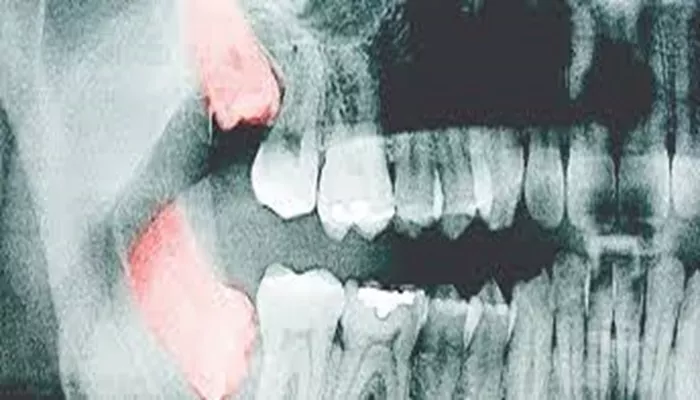Wisdom tooth extraction is a common dental procedure, but it can often lead to facial swelling and discomfort in the days following the surgery. As a dental expert, I understand the importance of managing and reducing swelling after wisdom teeth removal for a smooth recovery process. In this article, I will explore effective strategies to help minimize facial swelling and promote healing after wisdom teeth extraction.
Facial Swelling After Wisdom Tooth Extraction
Facial swelling is a natural response of the body to the trauma caused by wisdom tooth extraction. During the procedure, the dentist may need to make incisions in the gums and apply force to remove the teeth from their sockets. This can lead to bruising in the soft tissue, which in turn causes swelling and soreness. The good news is that these symptoms are temporary and should subside within a week of the procedure.
Factors Affecting Facial Swelling
Several factors can influence the severity and duration of facial swelling after wisdom tooth extraction:
Difficulty of the extraction: Impacted or deeply embedded wisdom teeth may require more extensive surgery, leading to greater swelling.
Pre-existing conditions: Certain medical conditions, such as diabetes or compromised immune systems, can slow down the healing process and increase swelling.
Individual healing response: Some people may be more prone to swelling than others due to individual differences in the body’s inflammatory response.
see also: How Much Is Wisdom Teeth Removal in Mexico
Strategies to Reduce Facial Swelling
To minimize facial swelling and promote a speedy recovery, follow these effective strategies:
1. Apply Cold Compresses
One of the most effective ways to reduce swelling after wisdom teeth removal is by applying cold compresses to the affected area. Use an ice pack bundled in a thin cloth and apply it gently to the outside of your face near the extraction site. The cold temperature helps constrict blood vessels, reducing swelling and inflammation. Remember to use the cold compress for 20-30 minutes at a time with intervals in between for optimal results.
2. Keep Your Head Elevated
Elevating your head while resting or sleeping can also help minimize post-operative swelling. Use an extra pillow or bolster up the head of your bed to keep your upper body at a slightly elevated angle. This position helps promote proper blood circulation and drainage, preventing excessive fluid buildup and reducing swelling.
3. Take Pain Relievers
Over-the-counter pain medications, such as acetaminophen or ibuprofen, can be effective in reducing swelling and pain after wisdom teeth removal. Follow the recommended dosage and avoid exceeding the maximum amount stated on the medication package. It’s important to consult with your dentist before taking any medication, as it may cause potential complications for some individuals.
4. Use a Warm Compress
After the first 24 hours, switch from a cold compress to a warm one. The warmth helps to dilate your blood vessels, allowing them to carry away the fluids that cause swelling. Apply the warm compress for 20 minutes at a time, with 20-minute breaks in between.
5. Maintain Gentle Oral Hygiene
Keeping your mouth clean is crucial to prevent infection and promote healing. Rinse your mouth with warm salt water several times a day.
However, be gentle and avoid vigorous rinsing or spitting. Brush your teeth starting the second day after surgery, but do not brush the extraction site of the wisdom teeth.
6. Consume a Soft Diet
Stick to a diet of soft foods to avoid irritating the extraction site. Foods like yogurt, mashed potatoes, and smoothies are good choices. Avoid using a straw as the sucking motion can disrupt the healing process.
7. Follow Post-Operative Instructions
Your dentist will provide detailed post-operative instructions after your wisdom teeth removal. Following these instructions diligently is crucial to promote healing and minimize swelling. These instructions may include guidelines on proper oral hygiene, avoiding strenuous activities, limiting physical exertion, and taking prescribed medications as directed.
What to Expect After Wisdom Teeth Removal
After your wisdom teeth extraction, you can expect to experience:
Swelling: Both in the mouth, around the jaw area, and on the face.
Pain: An aching sensation as the anesthetic wears off in the mouth.
Tingling sensation: Around the mouth that may last a few days or a few weeks.
Discoloration: On the cheeks caused by slight bruising.
Fatigue: You may feel tired after the procedure.
When to Seek Medical Attention
In most cases, some swelling after a tooth extraction is normal, but certain signs and symptoms indicate the possibility of a complication or an infection. Be alert for any of the following:
Pus around the extraction site.
A severe toothache that is not improving with medication.
Persistent bleeding from the extraction site.
Swelling around the jaw and/or the face that does not subside after 72 hours.
A fever: which may indicate an infection.
If you experience any of these symptoms, it’s essential to consult with your dentist immediately to prevent further complications and ensure proper healing.
Pre-Operative Preparation
Before your wisdom teeth extraction, take some time to prepare for the procedure. Stock up on necessary food items to make your life easier during the recovery process. Ensure that you have ice compresses and a warm compress, like a water bottle, ready for the first 48 hours. If needed, add extra pillows to your shopping list to help keep your head elevated while resting.
Conclusion
Facial swelling after wisdom tooth extraction is a common occurrence, but it can be effectively managed with the right strategies. By applying cold compresses, keeping your head elevated, taking pain relievers, using warm compresses, maintaining gentle oral hygiene, consuming a soft diet, and following post-operative instructions, you can minimize swelling and promote a speedy recovery.

